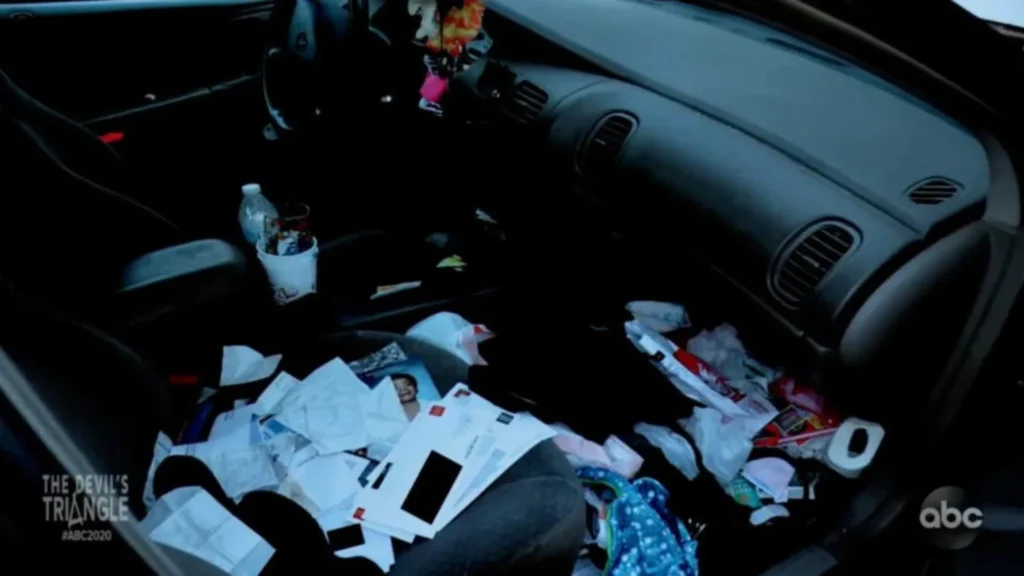On the night of December 17, 2013, the life of 20-year-old Heather Elvis seemed like it was just beginning. She was young, independent and building her future. But that same night, she disappeared without a trace. Her locked car was found abandoned at a boat landing in Socastee, South Carolina. Heather was never seen again.
Early Life
Heather Elvis was born on June 30, 1993, and grew up in Horry County, South Carolina. She was the older of two daughters and had a close bond with her younger sister, Morgan. Friends remembered her as creative and full of energy. After graduating from St. James High School in 2011, she started carving out her own life.
She shared an apartment in Carolina Forest with her roommate, Brianna Warrelmann. To pay the bills, she worked as a hostess at the Tilted Kilt and the House of Blues, both in Myrtle Beach. She was also taking cosmetology classes, hoping one day to become a makeup artist.
The Affair

The story took a darker turn in 2013 when Heather began a secret relationship with Sidney Moorer, a 37-year-old married man who worked as a maintenance repairman at the Tilted Kilt.
Sidney lived in Socastee with his wife, Tammy and their children. People around Heather noticed her attraction to Sidney. By June 2013, she was posting tweets about being “in way too deep” and even joked about “the guy who builds things at my job.”
But what started as excitement soon turned into a storm. Tammy Moorer eventually found out about the affair, and by all accounts, she was furious. Investigators later described Tammy as the dominant one in the marriage. She controlled Sidney’s movements, his job decisions and even his contact with Heather, according to ABC News.
At one point, Tammy called Heather directly. According to reports, she mocked her, saying Sidney had only used her. From that moment, things escalated. Heather received constant harassment in the form of phone calls, texts and social media messages. Friends said she was both frightened and heartbroken.
Meanwhile, Sidney and Tammy tried to patch things up. They even took a family trip to California shortly before Heather disappeared.
The Night Heather Vanished

December 17, 2013, was supposed to be a fun night for Heather. She went on a first date with a man named Steven Schiraldi. They drove around looking at Christmas lights and later practiced stick-shift driving in a parking lot. Steven dropped her off at her apartment around 1:15 a.m. He was the last person to see her alive.
Just twenty minutes later, at 1:35 a.m., Heather got a call from a payphone. That call lasted five minutes. Not long after, Heather phoned her roommate, Brianna, who was out of state at the time. She sounded shaken. Heather told Brianna that Sidney had called, said he was leaving his wife and asked her to meet him.
“She was hysterically crying… She told me that Sidney called her saying he left his wife and wanted to be with her… I told her, ‘Don’t do it. Sleep on this and we’ll talk about it first thing in the morning,’” Brianna later testified.
That was the last confirmed conversation with Heather.
Her phone activity stopped around 6 a.m. Later, her green Dodge Intrepid was found abandoned at Peachtree Boat Landing, about eight miles away. The car was locked. Her wallet, purse and phone were missing.
The Investigation

When police first found the car, they treated it as a missing person case. Horry County Investigator Jessica Livesay explained, “Originally, this case was just assigned out as a missing person… We did not know or have any reason to believe a crime had been committed in the beginning. The car showed no sign of a struggle. There was no blood, no broken glass.”
Still, evidence started piling up quickly. Phone records showed that Heather had been in contact with Sidney around the time she vanished. Surveillance cameras added to the suspicion.
Footage from Walmart caught Sidney buying cigars and a pregnancy test just before midnight, The State reports. Another camera captured Sidney’s black Ford F-150 driving toward Peachtree Boat Landing around the time Heather’s phone went dead.
Even stranger, investigators discovered the truck’s GPS had been disabled that night. They also learned that Sidney and Tammy installed a brand-new security system at their home right after police came to question them.
At first, Sidney denied everything. He said he hadn’t seen Heather and hadn’t contacted her. But video evidence proved otherwise. Finally, he admitted to calling her from the payphone. He claimed he only told her to leave him alone.
Trials and Charges

In February 2014, police arrested Sidney and Tammy Moorer. Both were charged with murder, kidnapping, obstruction of justice and even indecent exposure. Those last charges came from explicit photos found on their phones. Murder and indecent exposure charges were eventually dropped in 2016.
Sidney was the first to face trial. In 2016, his kidnapping trial ended with a hung jury. A year later, he was convicted of obstruction of justice for lying about the payphone call.
Tammy’s trial came next. In 2018, she was found guilty of kidnapping and conspiracy. The judge sentenced her to 30 years in prison. A year later, Sidney was retried for kidnapping. This time, he was also convicted and given 30 years. Both Sidney and Tammy appealed but those appeals were denied
What Came Out in Court
Court testimony revealed disturbing details about the Moorers’ marriage. Friends and coworkers said Heather thought she might be pregnant with Sidney’s child. She had even taken a test at work, though results were uncertain. Prosecutors argued this could have been a motive for Tammy to go after Heather.
Witnesses described Tammy as controlling. Some said she even handcuffed Sidney to their bed to keep him faithful. His relatives claimed she abused him physically. Sidney admitted he went along with Tammy’s rules to save their marriage.
During the trial, Sidney’s cousin claimed Sidney once showed him a picture of Heather’s body with injuries. The judge ruled this testimony couldn’t be used as evidence since the trial wasn’t about murder.
Lead prosecutor Chris Helms described the marriage bluntly: “If I could classify Sidney as anything in that relationship, it would be ‘utterly submissive.’”
Tammy, for her part, told the court she was just a wronged wife. She said she wasn’t involved in Heather’s disappearance but admitted she regretted how she handled finding out about the affair, per ABC7.
While the trials answered some questions, Heather’s body was never found. For her family, the pain remains. Each year, they hold memorials at Peachtree Landing, the place where her car was found.
The Elvis family has never stopped hoping for answers. A decade later, the truth of what really happened to Heather remains locked away with the people who know—and refuse to say.
Let’s dig into the legal side of lying to the police.
How Lying to Police Can Land You in Prison
Most people think of crimes like theft, assault or fraud when they imagine someone ending up behind bars. But in the U.S., you can land in prison for something that feels way smaller: lying to the police.
It sounds unbelievable but it happens all the time. A panicked answer in an interrogation room, a fake name during a traffic stop, even making up a story to protect a friend. Those words can turn into criminal charges.
The law makes a sharp line between keeping quiet and telling a lie. You have the right to remain silent. What you don’t have is the right to mislead. And that’s exactly where people get themselves into trouble.
What Counts as Lying?
Not every half-truth or white lie will bring the cops knocking. But when you knowingly give false information during an investigation, that’s when it becomes illegal.
Take this example: Florida Statute 837.055 spells it out clearly. It says lying to police means “knowingly and willfully giving false information to a law enforcement officer who is conducting a missing person investigation or a felony criminal investigation with the intent to mislead the officer or impede the investigation.”
That’s the language lawmakers use. It basically means: if you lie while police are investigating something serious — like a felony or a missing person — you could be charged.
Think of it this way: if a detective asks, “Did you talk to this person last night?” and you say “No,” even though your phone records say otherwise, that’s not just bending the truth. That’s giving false information during a felony investigation. And the law doesn’t take it lightly.
Different Ways It Shows Up
Lying to cops doesn’t always look the same. There are a few main categories, each with their own twist.
Obstruction of justice
This is the big umbrella. If your lie slows down, derails or throws off an investigation, prosecutors can call it obstruction. Sometimes it’s a misdemeanor. Other times, especially if the stakes are high, it becomes a felony.
False reporting
Imagine calling 911 and saying your car was stolen when you actually just parked it somewhere and forgot. That’s false reporting. Police waste hours chasing nothing. And if someone else gets accused because of it, the consequences spiral.
Fake identification
Giving cops the wrong name, birthday or ID is a crime too. Even if you’re only trying to dodge a speeding ticket, you’re adding charges on top of the ticket.
Perjury
This is lying under oath. It usually shows up in court but it can also apply when you’re giving sworn statements to police. It’s one of the oldest crimes in the book and judges hammer down on it.
What Can Happen If You Lie
The penalties stretch from small to life-changing, depending on what you said and why.
- Misdemeanor charges
A first-time lie in a smaller case might mean probation, fines up to $1,000 or a year in jail. - Felony charges
Repeat offenses or lying during investigations into serious crimes, can push it into felony territory. That means up to five years in prison and thousands in fines. - Federal cases
Here’s where it gets really serious. Lying to federal agents — FBI, DEA, ATF — is a whole other level. Federal law makes it punishable by up to five years in prison. And the feds almost always follow through. - Obstruction sentences
Obstruction charges are flexible. Sometimes it’s months. Sometimes it’s years. Courts look at how much damage the lie did to the investigation.
And it’s not just prison or fines. A conviction for lying to law enforcement leaves a permanent mark on your record. Employers see it. Landlords see it. Licensing boards see it. Once you’ve got “obstruction” or “false report” tied to your name, doors close.
Storytelling It in Real Life
Let’s imagine this: police are looking for a missing person. They ask you if you’ve seen them. You panic. Maybe you had coffee with them last night but don’t want to admit it. You say “No.” Hours later, cops pull camera footage that shows you sitting across from the person at a diner. That one denial suddenly looks like obstruction of justice.
That’s how fast things escalate. You thought you were protecting yourself. Instead, you’ve made yourself a suspect.
A former prosecutor told The New York Times: “The cover-up is almost always worse than the original act.” And that’s exactly why lying carries such heavy weight in courtrooms.
Why Intent Matters
Here’s the tricky part: not every wrong answer is a crime. If you genuinely forget a detail or misremember something, that’s not the same as lying.
But if prosecutors can show you intended to mislead, you’re in trouble. Intent is what makes the difference. Courts look at whether the statement was deliberate, whether it affected the investigation and whether it was part of a bigger cover-up.
For example, if you destroy evidence, hide a witness or feed police a fake story, that’s clearly intentional. And the more intentional it looks, the harsher the penalty.
How States Handle It
Every state has its own spin on the rules. A few examples:
- Florida: Up to one year in jail for lying to cops during a missing person or felony case. Repeat it and you’re looking at felony charges.
- Texas: False reports to police can be misdemeanors or felonies, depending on what happened. Perjury is always treated as a felony.
- California: Giving false ID or false reports is usually a misdemeanor but jail time is still possible.
- Washington: False reports that result in someone else getting hurt are classified as a felony.
So while the general idea is the same — don’t lie — the punishment depends on where you are.
The Hidden Costs
The courtroom isn’t the only place you’ll pay. A conviction can wreck things far beyond the legal system:
- Job applications: many companies won’t hire someone with a record of dishonesty.
- Professional licenses: teachers, nurses, real estate agents — all can lose their credentials.
- Housing: landlords run background checks and may reject applicants with criminal records.
- Reputation: once people know you lied to law enforcement, trust is hard to rebuild.
And that damage doesn’t fade. Even if you serve your time, the record follows you.
Why Lawyers Always Say “Don’t Lie”
Defense attorneys repeat this advice constantly: don’t lie, don’t guess, don’t make things up. If you don’t want to answer, use your right to remain silent. That’s always safer than a false statement.
As the legal site FindLaw.com puts it: “While silence is not a crime, lying to a police officer can be.”
If you’re facing questioning in a serious case, the smartest move is to ask for a lawyer. Even small lies can snowball into life-changing charges. And once the words are out of your mouth, you can’t take them back.
At the end of the day, lying to police might feel like a quick escape but it almost always backfires. The justice system treats deception as an attack on the process itself. That’s why penalties are steep, whether you’re in Florida, Texas, California or dealing with the feds.
A white lie to protect yourself or someone else can end up costing years of your life. The law doesn’t see it as protecting — it sees it as obstruction.
The bottom line: if you can’t tell the truth, say nothing. But never lie.



